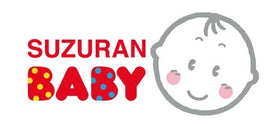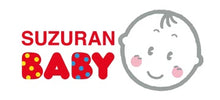5 Important Facts Parents Should Know about Baby’s Oral Health
Although a baby’s teeth are not visible at birth, they are born with a mouthful of teeth. Those pearly whites will only start to emerge at around 6 months old. Even though a baby’s teeth are not visible, it does not mean they need not be taken care of. Here is what you need to know about your baby’s oral health.
-
Healthy baby teeth are more important than you think.
Baby teeth are already inside their jaws at birth. Baby teeth help hold spaces open for the permanent teeth to come in. They form the shape of your child’s face. And more importantly, baby teeth play an important role for your child to speak more clearly, chew and eat more easily.
-
Baby’s oral hygiene affects teeth development.
Dental experts recommend wiping baby’s gums with a damp washcloth or baby oral wipe after feeding to prevent buildup of bacteria or plague. It is important to clean your baby’s gums regularly as this prepares the gums for the new teeth to push through. It will also ease your baby’s transition to brushing once his first tooth erupts. Not only that, applying gentle pressure by massaging your baby’s gums can help relieve teething discomfort.
-
Cavities form faster in your baby’s teeth.
Cavities (tooth decay) can start to develop as soon as baby teeth come in. Cavities are caused by sugar and bacteria living in baby’s mouth. Bacteria in the mouth change sugar in breast milk, formula, or any food into an acid that can eat into the enamel (outer layer) of teeth. The acid can form within 20 minutes each time after your baby drinks or eats something and it stays on the teeth unless removed. Hence, it is important to clean your baby’s tongue, gums and teeth at least twice a day to prevent tooth decay.
-
Cavities can be spread through saliva.
Cavities are caused by bad bacteria in the mouth and the bad bacteria can be easily transmitted from the caregiver to the baby. Do not test the milk temperature with your mouth or taste your baby’s food with the same utensil. It is also important to sterilize all parts of bottles, pacifiers and any utensils regularly.
-
Breast milk and formula milk have sugar in them.
There is no way to avoid sugar in food. Breast milk is low in sugar content hence you need only clean your baby’s mouth twice a day if your baby is fully on breast milk. On the other hand, formula milk contains lactose which is “milk sugar” that’s found naturally in cow’s and goat’s milk. If your baby is partially or fully on formula milk, it is best to clean your baby’s mouth after every formula feed.
Establishing good oral care habits for your baby should start as early as they start feeding to ensure good oral health as well as healthy permanent teeth in the future. Check out the following IG post to determine whether the white coating on your baby's tongue is caused by milk or thrush.





